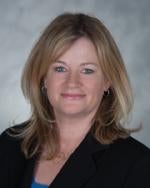Addressing issues of claim construction, the US Court of Appeals for the Federal Circuit affirmed a limiting construction of a claim term where the specification exclusively used the disputed term in the limited fashion. GPNE Corp. v. Apple Inc., Case No. 15-1825 (Fed. Cir., Aug. 1, 2016) (Prost, J).
GPNE brought suit against Apple for allegedly infringing two patents relating to a two-way paging system capable of receiving and sending messages. All of the patent claims refer to the devices on the network as “nodes” and are otherwise silent as to the type of device a “node” may be. The central dispute was the court’s construction of the claim term “node” as a “pager with two-way data communications capability that transmits wireless data communications on a paging system that operates independently from a telephone network.” GPNE argued that a “node” should be broadly construed as a “device in a network that can transmit and receive information.” Apple argued that the term should be limited to a “pager in a network operating independently of a telephone network.” The district court agreed with Apple, and the jury ultimately issued a verdict that the patents were valid but not infringed. GPNE appealed.
GPNE argued that the district court’s construction of the term “node” was erroneously limited to “pagers.” GPNE argued that the specification contained a broader description of “nodes,” but except for the abstract, the patent specification did not use the term “node” and instead referred to the devices as “pagers” or “paging units.” Based on the principle that the words of a claim are generally given their ordinary and customary meaning in the context of the claims and the specification, the Federal Circuit found that the specification repeatedly and exclusively used the words “pager” and “pager units” to refer to the devices in the patented system.
GPNE also argued that principles of claim differentiation counsel against construing a “node” as a “pager,” because the parent of the patents at issue claimed both a “paging system” and a “paging unit.” The Federal Circuit again disagreed, finding that the claims GPNE cited for its claim differentiation argument differed in more ways than just their use of the terms “node” and “pager.” Thus, the Court found that the inference of claim differentiation between the parent and asserted patent claim was weak at best, and that it was proper for the district court to characterize a “node” as a “pager.”
GPNE also argued that the construction of the “node” as operating independently of a telephone network was improper based on a single sentence of the specification. The Federal Circuit found the construction proper, as the single sentence relied upon was a summation sentence that describes “the invention” as a whole.
Finally, GPNE argued that the district court’s failure to provide a construction of the term “pager” improperly left an issue of claim construction for the jury in violation of the Federal Circuit rule laid down in O2 Micro. But, as the Federal Circuit explained, the duty to construe claims is not without limits. In this case, the district court resolved the question of claim scope by construing the term “node” and was under no obligation to address other potential ambiguities (such as the meaning of the term “pager”). As the Court observed, only claim terms that are in dispute must be construed and even then, only to the extent necessary to resolve the dispute.




 />i
/>i

